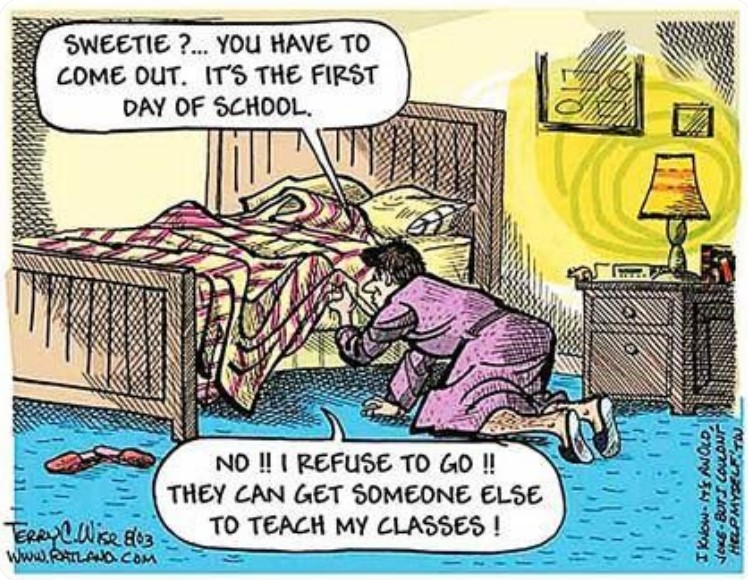All schools will be analysing their Mock results in January, a process I am grateful to be detached from these days. Good or bad, encouraging or worrying, the results will be pored over and teachers will be challenged. This happens even more so in August. However good their results, teachers will be asked to explain the students that ended up below par. One student was one mark off a 7: what went wrong there? What could you have done differently? Until this stops happening (and I fail to envisage a future in which it does), then teachers will teach to the test.
Yet this is not the only reason that teachers do so, and I would argue that teaching to the test is only undesirable when it happens to the exclusion of all else. When teaching to the test becomes the sole purpose of education, of course we have a problem; but teaching to the test involves exam technique and is an essential part of a functioning education system; we’re doing the students a disservice if we pretend otherwise.
Examinations are a game – a sport, with complex rules. Students with privilege are taught how to play the game and are drilled over time for the match. They have parents that support them in their training and cheer from behind the touchline. They have coaches, experienced in honing their skills and their mindset. They have the right equipment. One of the most powerful things that we can do for our kids is to teach them the rules of the game; to send them onto the field without such preparation is setting them up for failure.
The notion that well-taught students will perform to the best of their ability without direct and explicit preparation for a particular examination is a ludicrous fantasy, and I am stunned at the number of high-ranking educationalists that seem wedded to it. Until we find a fair and robust way of testing students other than written examination (which hasn’t happened to date) what would we all prefer: a teacher who understands the examination process or a teacher who doesn’t?
One of the single most useful things that a teacher or a tutor can do is to mark for the relevant exam board. The training that you receive demystifies the examination process and the unhelpful mark-schemes filled with phrases such as “wide-ranging response” and “answer fully shaped for purpose”. Train as a marker and the chief examiner will enlighten you as to what on earth these statements actually mean (for example, with a ball-park figure on the number of points expected in a “wide-ranging” answer). Marking is a tedious and stressful responsibility to take on board on top of your teaching load and is certainly not worth it for the money – but the benefit to students is immense. This is most especially true for subjects with extended-answer questions and is also especially important at A level.
My core experience is in preparing students for the GCSE examination, for Common Entrance and for scholarship. No system encourages gaming more than this one, and I am unashamed in sharing my in-depth knowledge of the examiners’ habits and my understanding of what they are looking for. It’s essential to success. In my view, a student should walk into an examination feeling totally prepared for what will appear in front of them. There should be no surprises, no shocks. The process should be an opportunity for students to show what they can do: yes, under pressure, but not intolerable pressure. Enough to get the adrenaline pumping.
Latin has a reputation for being difficult, something which I have explored in other posts. It is offered in many schools as provision for academic stretch and challenge. Those who speak against teaching to the test accuse teachers of losing sight of the bigger picture, of failing to prepare their students for becoming future specialists in their subject in favour of a blinkered, exam-focused approach. But the notion that any teacher can guide their students to excel in an examination without furnishing them with skills that are transferable to A level is startling to me. Who is actually doing that?! This does not mean that students will find the switch to A level unchallenging – of course they will find it difficult, and so they should; but the analytical skills they have been taught at GCSE will transfer, as will the study skills, as will the method of approaching an exam with their eyes wide open, armed with the knowledge and know-how required to succeed.
If this is not the purpose of what we do, I’ve been getting it wrong for more than two decades.







